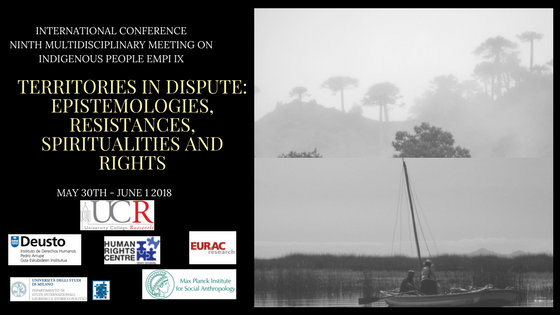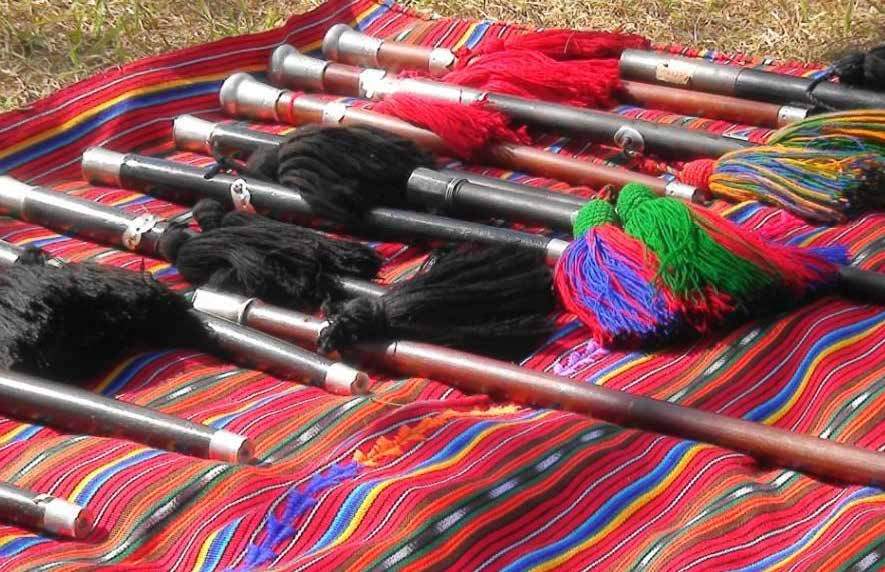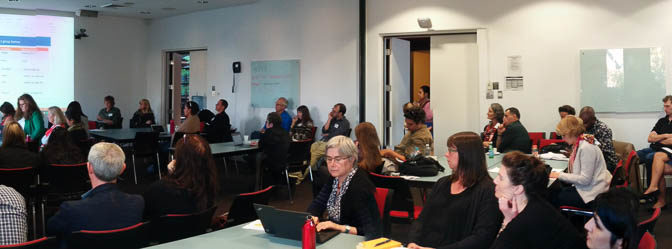The Epistemologies of the South symposium was held at Sydney University on 14 April. It received an extraordinary response. Some of the sessions were standing room only.
The event was convened by Raewyn Connell and Fran Collyerto bring together of scholars in the social sciences interested in the status of knowledge production in the South. The morning included brief presentations from Maggie Walter, Vera Mackie, Helen Gardner, Devleena Ghosh and myself. We also heard from those involved in the Arenas of Knowledge project (João Maia, Robert Morrell, Vanessa Watson, Patrick Brownlee and Beck Pearse), a collaboration between Brazil, South Africa and Australia to map social science publishing in the South.
The rest of the day involved group sessions and plenaries where experiences of working in the South were shared. “Speaking bitter thoughts” was encouraged as a way of understanding the experience of working in the university environment, particularly for indigenous peoples (this reflected the People’s Tribunal in Melbourne).
There were many interesting discussions about the knowledge terrain of the South. The universal nature of English in scholarly publishing was seen by many as inevitable, but it was felt that there should be more allowance for the difficulty faced by second-language speakers and for concepts that were not easily translated. The economic challenge for poorer Southern countries of subscribing to scholarly journals was also mentioned. While there are Open Source alternatives for publication, the unpaid labour in maintaining these needs recognition as part of academic work.
More generally, there was broad discussion about the overall framework of knowledge production. The accepted capitalist model of knowledge accumulation through data extraction and publication output was questioned. This seemed to leave little time to reflect on what is learnt. It also does not accommodate indigenous practices, which focus more on the reproduction of knowledge as a form of stewardship. Reflecting the work of Unaisi Nabobo Baba on silence, there was discussion about the importance of listening as a scholarly modality. Overall, there was a feeling that knowledge in a southern context should involve a quality of slowness that engages with the social relations at play.
Raewyn Connell felt the event had fulfilled its aims:
I was very pleased at the way the national symposium brought together different generations of scholars, and people working in different traditions of knowledge and thought. Good discussions went on right through the day, and I’m hopeful that many links have been made that will energise this major re-thinking of social knowledge.
Critically, the symposium resolved to establish a mailing list so that the participants can organise future events that will continue these conversations. It will be interesting to see how these conversations develop. The academic machine offers a ready-made system for accumulating knowledge in professional journals. How might an archive of southern knowledge be designed?







